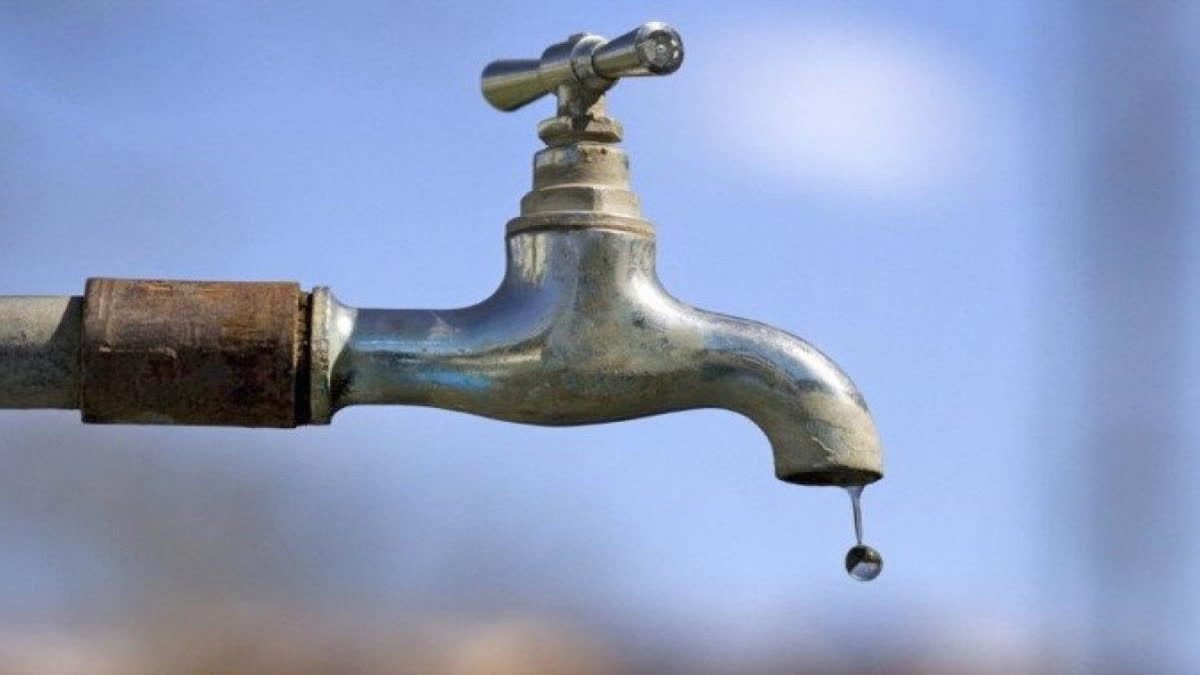Srinagar: A prolonged dry season and insufficient precipitation are causing a concerning decline in water levels in the Kashmir Valley’s rivers, springs, and other water sources.
Officials and experts are cautioning about the possible long-term effects on irrigation systems, the availability of drinking water, and the environment as a whole in the area.
According to the officials, the region’s drinking water supply is stable, primarily because of a decline in seasonal demand. Nonetheless, they stress that the ongoing deficiency of notable precipitation remains a serious obstacle, underscoring the pressing necessity of precipitation and snowfall to restore the water level in the water bodies.
Er Braham Jyoti Sharma, Chief Engineer of Irrigation and Flood Control (IFC) for Kashmir, told ETV Bharat that they are keeping an “adequate” water supply in the area despite the prolonged dry period and lower water levels in nearby water bodies.
“Our rivers, ponds, and springs are drying up because we aren’t getting enough rain and snow,” he remarked. “Both agriculture and drinking water supply depend on these water sources. Since natural recharge processes are out of human control, we are optimistic that precipitation will occur soon.” he added.
Sharma responded to the problem by stating that steps have been taken to stabilize the water supply. “Since the region’s agricultural season ended, there has been a noticeable decrease in the demand for irrigation,” Sharma pointed out.
“At the moment, we can maintain a sufficient supply of drinking water, but the lack of precipitation presents a significant obstacle for the upcoming months,” he added.
Snowfall is essential for maintaining the Valley’s water supplies, according to another top official from the Irrigation and Flood Control Department. “During the summer, snowfall serves as a natural reservoir, feeding rivers, streams, and glaciers. The area runs the risk of experiencing acute water shortages at times of high demand if there is insufficient snowfall,” the official said.
The officer went on to explain that snowfall is essential for restocking rivers and streams, acting as a buffer for summers. He cautioned that “its absence might put a heavy burden on the Valley’s water supplies.”
The official further added that although the halt of irrigation activities brought about by winter has decreased demand, the departure of seasonal populations has somewhat relieved pressure on the water supply.
Officials acknowledged the growing pressure on water supplies despite continuous mitigation efforts, saying that regular snowfall and rainfall are still the only long-term solution for the Valley’s worsening water situation.
“We are doing everything we can, to manage the supply, but our resources will continue to be at risk without nature’s assistance,” the official said.
Read more:



